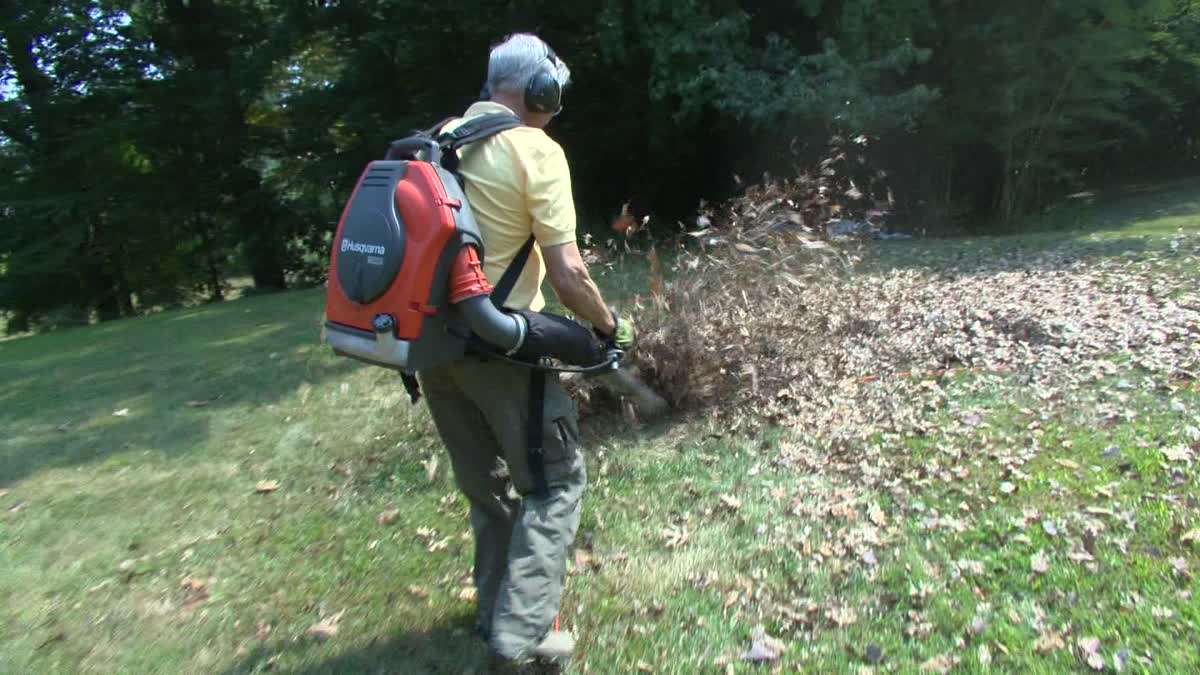As respiratory infections rise, cold and flu season begins, allergy season persists and the BA.5 omicron subvariant continues its dominance, it can be hard to differentiate what exactly is behind your COVID symptoms -- especially as some linger longer than others.
The Chicago area has reported a sharp rise in child hospitalizations in recent weeks due to a variety of respiratory infections. Meanwhile, nearly two dozen Illinois counties remain at a high community level for COVID and allergy season continues to take its toll.
"A lot of the viruses that are circulating now and increasing now are things that we didn't see for a couple of years because of COVID," said Dr. Isaac Ghinai, a medical director for the Chicago Department of Public Health.
"Because there's of course less flu around, everybody's staying at home as well so there were really quiet years for some of these childhood respiratory infections, but they are common respiratory infections normally. So now they're recirculating and sometimes at higher levels than might be expected in years like this."
The dominant COVID variants tend to sit in the nasal passage and cause infection, instead of settling in the lungs, Chicago Department of Public Health Commissioner Dr. Allison Arwady said last month.
Feeling out of the loop? We'll catch you up on the Chicago news you need to know. Sign up for the weekly Chicago Catch-Up newsletter here.
But while common upper respiratory symptoms continue to be among the first signs of COVID, what about the symptoms that last even longer?
For some who test positive for COVID, symptoms can last much longer as part of a condition known as "long COVID."
According to the CDC, COVID symptoms can appear anywhere from two to 14 days after someone is exposed to the virus. You can end isolation after five full days if you are fever-free for 24 hours without the use of fever-reducing medication and your other symptoms have improved.
Local
The CDC says most people with COVID-19 "get better within a few days to a few weeks after infection."
For some, symptoms may last even longer.
"Post-COVID conditions can include a wide range of ongoing health problems," the CDC states. "These conditions can last weeks, months, or years."
A recent study from Northwestern Medicine showed that many so-called COVID "long-haulers" continue to experience symptoms like brain fog, tingling, headaches, dizziness, blurred vision, tinnitus and fatigue an average of 15 months after the onset of the virus.
"Long-haulers,” are defined as individuals who have had COVID symptoms for six or more weeks, the hospital system has said.
But, according to the CDC, four weeks after infection is when post-COVID conditions could first be identified.
"Most people with post-COVID conditions experienced symptoms days after their SARS CoV-2 infection when they knew they had COVID-19, but some people with post-COVID conditions did not notice when they first had an infection," the CDC states.
Arwady noted that coughs can often linger up to a month after testing positive for the virus, even if a patient isn't contagious anymore.
"The cough tends to be what lingers," Arwady said. "That doesn't mean that you're still infectious. It's that you've had a lot of inflammation in your airways and the cough is your body's attempt to sort of continue to expel any potential invader and allow it to calm down."
People who got COVID-19 also had a higher risk of dangerous blood clots for close to a year later, according to a large new study on the aftereffects of a SARS-CoV-2 infection during the period before vaccines became available.
As seen in previous studies, COVID-19 was linked to a sharply increased risk of blood clot-related issues – including heart attack and stroke – immediately after diagnosis compared to people who never had COVID-19. But the new study found that risk remained higher for some problems up to 49 weeks later.
Long-COVID symptoms can range from a wide variety of ailments, some of which may even disappear and then return later.
"Post-COVID conditions may not affect everyone the same way. People with post-COVID conditions may experience health problems from different types and combinations of symptoms happening over different lengths of time," the CDC reports. "Most patients’ symptoms slowly improve with time. However, for some people, post-COVID conditions may last months, and potentially years, after COVID-19 illness and may sometimes result in disability."
Symptoms of Long COVID
According to the CDC, the most common long symptoms include:
General symptoms
- Tiredness or fatigue that interferes with daily life
- Symptoms that get worse after physical or mental effort (also known as “post-exertional malaise”)
- Fever
Respiratory and heart symptoms
- Difficulty breathing or shortness of breath
- Cough
- Chest pain
- Fast-beating or pounding heart (also known as heart palpitations)
Neurological symptoms
- Difficulty thinking or concentrating (sometimes referred to as “brain fog”)
- Headache
- Sleep problems
- Dizziness when you stand up (lightheadedness)
- Pins-and-needles feelings
- Change in smell or taste
- Depression or anxiety
Digestive symptoms
- Diarrhea
- Stomach pain
Other symptoms
- Joint or muscle pain
- Rash
- Changes in menstrual cycles
Sometimes, the symptoms can be difficult to explain. Some may even experience multiorgan effects or autoimmune conditions with symptoms lasting weeks or months after COVID-19 illness, the CDC reports.
Chicago officials have said that while it can be challenging to determine if symptoms like congestion are allergy flare-ups or lingering COVID, some may choose to take an at-home COVID test before leaving isolation.
"Some people have been using home testing to add an additional level of comfort to that," Arwady said. "I want to be very clear that if you go and get a formal test, a PCR test, that can stay positive for weeks sometimes after you've had COVID because it's so sensitive, it can pick up even dead virus, little amounts of virus. So... those at-home tests can give you another level of support and if you are, you know, at 14 days out and you're still like, 'I don't know, I'm still not feeling that well,' you know, if possible, when you're not feeling well, limit your interactions, definitely wear the mask, but also you can take a COVID test and if it is negative, that's another piece of information that suggests you're very unlikely to be contagious at that point."



